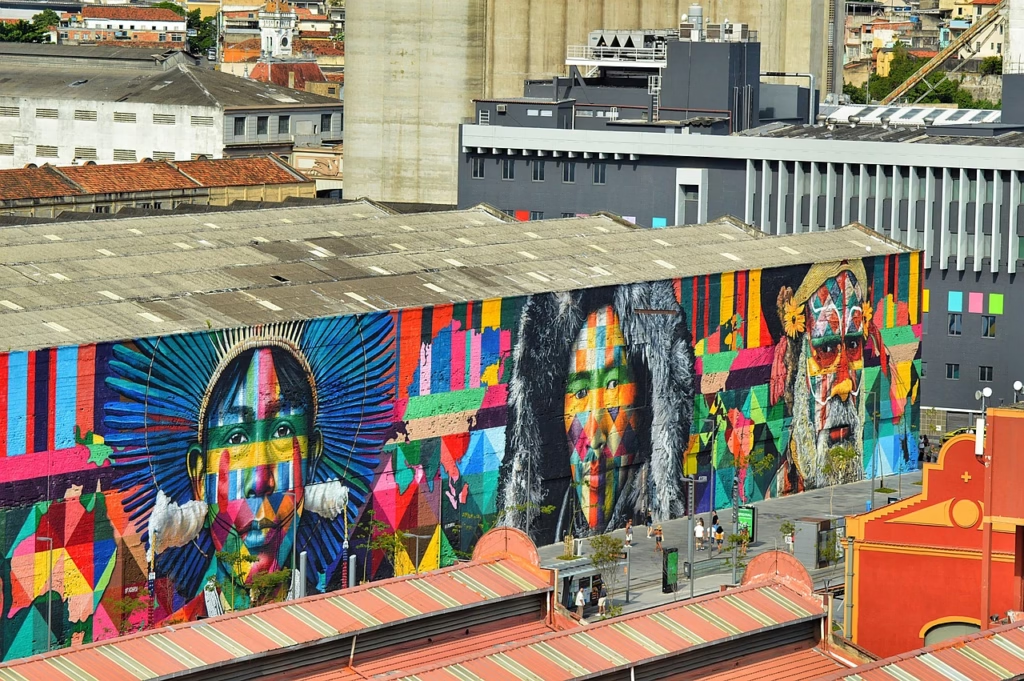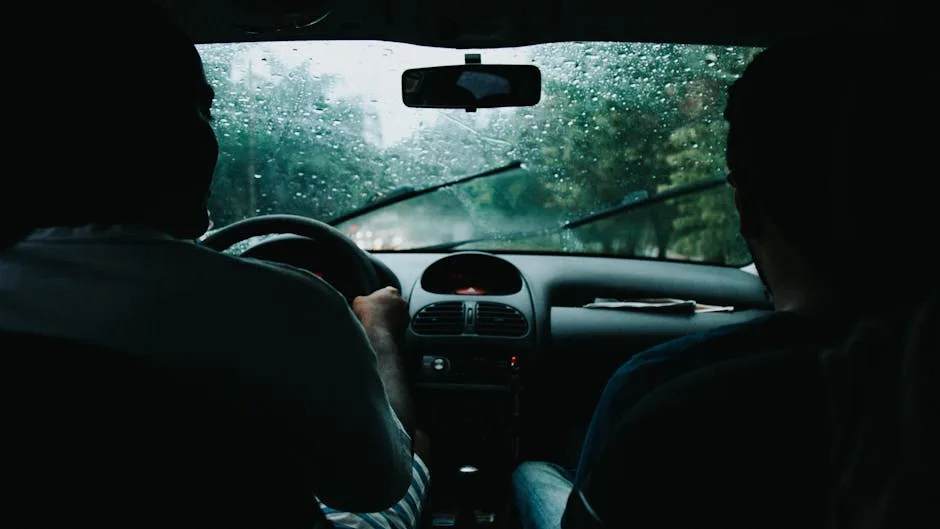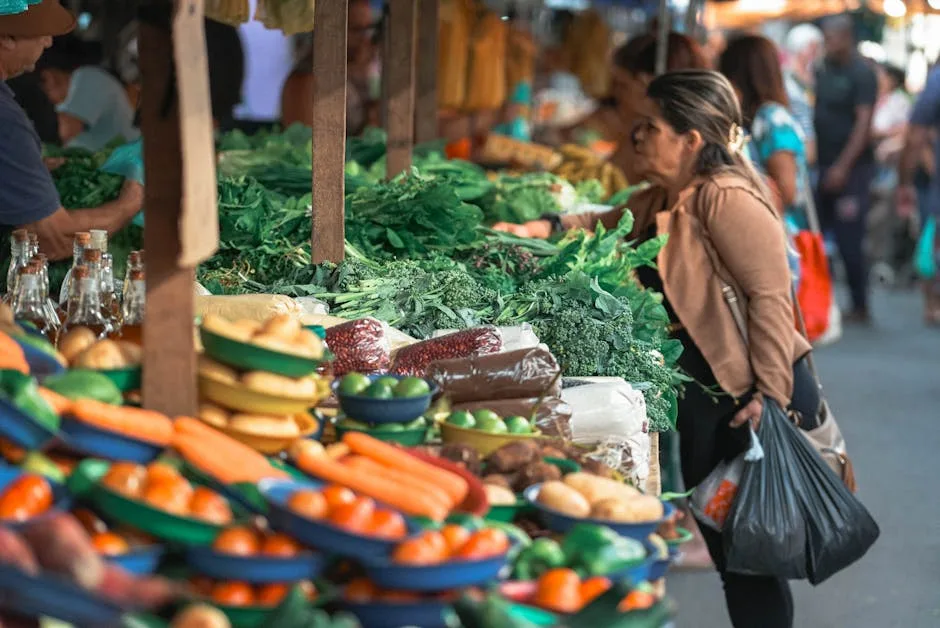Brazil stands as a captivating travel destination that offers an extensive range of experiences for visitors. Renowned for its diverse landscapes, Brazil encompasses the vast Amazon rainforest, picturesque beaches along the Atlantic coast, and vibrant urban hubs such as São Paulo and Rio de Janeiro. Each of these regions showcases the country’s natural beauty and cultural richness, becoming a significant draw for travelers from around the globe.
The Amazon, one of the world’s most vital ecosystems, offers visitors the chance to immerse themselves in nature through guided tours, wildlife observation, and indigenous community experiences. Alternatively, the stunning beaches found in Bahia and the renowned Copacabana and Ipanema beaches in Rio provide an exhilarating contrast of leisure and entertainment. The lush hills of Minas Gerais and the breathtaking vistas of the Pantanal further add to Brazil’s multifaceted allure.
In addition to its landscapes, Brazil is a melting pot of cultures and traditions, shaped by a blend of indigenous heritage, Portuguese colonial influences, African traditions, and contemporary global connections. Festivals such as Carnaval display Brazil’s vibrant culture through colorful parades and lively music, making it a unique experience that travelers should not miss.
While the appeal of Brazil is undeniable, it is essential for prospective visitors to consider their travel budget, which can vary significantly based on several factors. Costs can fluctuate depending on the time of year, specific regions visited, accommodation preferences, and activities planned. Understanding these elements will help travelers better navigate their budget and enjoy the myriad offerings of this diverse nation. As we delve deeper into this budget guide, we will explore how to manage expenses effectively while making the most out of a trip to Brazil.
Understanding the Cost of Living in Brazil
Traveling in Brazil offers a unique blend of experiences and expenses, reflecting the country’s diverse culture and geography. The cost of living can vary significantly depending on various factors, such as location and lifestyle choices. As a traveler, it is essential to understand these dynamics to effectively budget for your visit.
Accommodation is a primary consideration. In major cities like São Paulo and Rio de Janeiro, prices for hotels and hostels can be substantially higher than in rural areas or smaller towns. While a budget traveler might find hostel beds for as low as BRL 50, mid-range hotels in urban centers often start from BRL 200 per night. Conversely, a similar standard of lodging may cost significantly less outside major cities, allowing for more economical options.
Food expenses can also vary widely. In urban areas, dining at a local restaurant can cost between BRL 30 to BRL 60 per meal, while street food, which is a staple for many, can provide affordable and authentic culinary experiences starting at BRL 10. In contrast, prices in rural settings may be lower overall, but the availability of international cuisines could be limited. Therefore, understanding the local eating habits can aid in managing food budgets effectively.
Transportation is another critical aspect of budgeting in Brazil. Public transportation systems, like buses and metros, are generally affordable, with average fares around BRL 4 to BRL 6. However, when considering long-distance travel, such as intercity buses or domestic flights, costs can rise significantly. Rideshare services are popular in urban areas, providing convenience but at a higher cost compared to public options.
Lastly, entertainment expenses must be factored in, with options ranging from free events to higher-priced attractions and tours. Cultural venues like museums often feature reduced entry fees or free days, providing budget-friendly opportunities to explore Brazil’s rich heritage. Overall, being aware of these regional differences and urban versus rural cost variances is crucial for travelers aiming to create a realistic budget for their Brazilian adventure.
Budget Categories: Backpacker, Mid-range & Luxury Travelers
When planning a trip to Brazil, understanding the expected budget for different types of travelers is essential. The costs can vary significantly based on individual preferences and travel styles. In this section, we will categorize travelers into three profiles: backpackers, mid-range travelers, and luxury tourists, providing a comprehensive look at the daily budgets for each group.
Backpackers are typically seeking affordable options, focusing on cost-effective travel solutions. For this group, the daily budget can range from $30 to $60. Accommodation options include hostels and budget guesthouses, which generally cost between $10 to $20 per night. For meals, street food and local eateries provide delicious yet affordable choices, averaging around $10 per day. Transportation costs for backpackers are usually minimal, as they can utilize public transport or even travel by foot in many cities. Additionally, low-cost or free activities, such as visiting public beaches or hiking, contribute to keeping their expenses low.
Mid-range travelers, on the other hand, have a higher budget and are willing to spend between $70 to $150 daily. This category often opts for comfortable hotels or boutique hostels that typically cost between $30 to $80 per night. Dining at mid-range restaurants allows for a blend of local and international cuisine and can add $20 to $40 to their daily expenditure. Transportation may include a mix of public transit and occasional taxi rides. Furthermore, mid-range travelers often indulge in activities like guided tours or cultural experiences, adding extra costs but enhancing their travel experience.
Lastly, luxury travelers are those who prioritize comfort and exclusive experiences during their time in Brazil. Their daily budget can exceed $200, reflecting an inclination towards high-end accommodations, which can range from $100 to $500 per night. Gourmet meals and fine dining experiences are more common, costing anywhere from $40 to $100 daily. Moreover, luxury tourists typically prefer private transportation and tailored activities, ensuring their journey is both convenient and memorable. With this comparative framework, travelers can better align their expectations with their individual preferences and ensure a satisfying experience in Brazil.
Transportation Costs within Brazil
Traveling around Brazil presents a myriad of transportation options that fit various preferences and budgets. The most commonly utilized modes include public transport, taxis, and domestic flights, each serving unique needs and cost structures.
Public transportation is a cost-effective choice, especially in major cities like São Paulo and Rio de Janeiro. Buses, subways, and trams provide extensive networks that facilitate easy navigation through urban areas. For example, a single bus or subway fare typically ranges from R$4 to R$8, making it an economical option for daily commutes and short trips. Additionally, many cities offer integrated transport passes that allow for unlimited travel within certain time frames, further easing budget constraints.
Taxis and ride-hailing services like Uber also play a significant role in Brazil’s transportation landscape. While they provide convenience, especially for late-night travel or locations not easily accessible by public transport, the costs can vary greatly depending on distance and city pricing standards. Standard taxi fares start around R$5, with additional charges per kilometer. Ride-hailing services usually have a base fare plus distance-based charges, which can range from R$10 for short distances to significantly higher amounts for longer travels, especially during peak times.
For those planning longer journeys between cities, domestic flights can be a practical, albeit more expensive option. Brazil’s vast size makes flying a time-efficient alternative, particularly when traveling from one region to another. Ticket prices fluctuate, typically starting from R$200 to R$1,200 or more, depending on destination and booking proximity to the travel date. Budget airlines also operate throughout the country, significantly lowering costs but often at the expense of added fees for baggage and other services.
In conclusion, understanding the various transportation options in Brazil is crucial for effective budgeting. Each mode – public transport, taxis, and domestic flights – offers a different balance of cost and convenience, allowing travelers to choose based on their specific needs and financial considerations.
Accommodations: Options and Pricing
Traveling around Brazil offers a plethora of accommodation options to suit various budgets, styles, and preferences. From budget hostels to lavish luxury hotels, the diversity in lodging is substantial, making it essential to understand the trade-offs involved when choosing where to stay.
For budget-conscious travelers, hostels are among the most economical choices, with prices ranging from approximately R$50 to R$150 per night. These establishments often provide dormitory-style rooms, shared facilities, and the opportunity to meet fellow travelers. Hostels can be found in major cities and tourist hotspots, allowing guests to be centrally located without breaking the bank. However, travelers should consider the potential for reduced privacy and comfort compared to other accommodations.
Mid-range hotels present a balance between cost and comfort, with prices typically varying from R$150 to R$400 per night. These establishments often feature private rooms and en-suite bathrooms, along with amenities such as breakfast, Wi-Fi, and sometimes swimming pools or gyms. Mid-range hotels are prevalent throughout Brazil, particularly in urban areas and popular destinations like Rio de Janeiro and São Paulo. Travelers looking for comfort without the exorbitant price tags of luxury accommodations will find this category appealing.
For those seeking an extra touch of indulgence, luxury hotels and boutique accommodations provide an opulent experience. Prices for these high-end options can start from R$400 and can exceed R$1,500 per night, depending on the location and brand. Amenities may include gourmet restaurants, spa services, and breathtaking views, offering visitors a premium stay. It is crucial, however, to assess the location of luxury hotels as they may be situated away from more authentic local experiences compared to less costly options.
Ultimately, selecting accommodations in Brazil will be influenced by individual preferences, budget constraints, and travel style. Understanding the range of options available will enable travelers to make informed decisions that align with their needs and expectations while exploring the diverse and vibrant culture of Brazil.
Cost of Food and Dining Out
Food costs in Brazil can vary significantly depending on the type of dining experience one chooses. Street food is among the most affordable options, offering a diverse array of dishes that allow travelers to experience authentic Brazilian flavors without breaking the bank. Staples such as pastéis (fried pastries), coxinhas (chicken croquettes), and the beloved pão de queijo (cheese bread) are commonly found in street markets, priced from R$5 to R$15 (approximately $1 to $3 USD). This budget-friendly option not only satisfies hunger but also presents an opportunity to mingle with locals and immerse oneself in the vibrant culture.
Casual dining, characterized by family-owned establishments and local eateries, provides a range of meal options at moderate prices. A typical meal in such settings can cost between R$20 and R$50 (around $4 to $10 USD), often including traditional dishes like feijoada (black bean stew) or a hearty steak accompanied by rice and beans. Many casual dining spots also have daily specials, which can present excellent value for scrumptious meals that reflect the region’s culinary heritage.
For those seeking an upscale experience, fine dining establishments in major cities such as São Paulo or Rio de Janeiro can set diners back anywhere from R$100 to R$300 (approximately $20 to $60 USD) per person. These restaurants often showcase gourmet versions of Brazilian cuisine with an emphasis on premium ingredients and innovative cooking techniques. Reservations are recommended, particularly in popular venues.
To eat on a budget while still enjoying the rich culinary landscape of Brazil, travelers should explore local food markets and participate in food tours. Preparing simple meals using fresh ingredients from local markets can also help keep costs low. Overall, whether indulging in street snacks or dining at a fine restaurant, Brazil offers a plethora of options to cater to every budget while showcasing its renowned culinary diversity.
Activities and Experiences: What to Budget For
When planning a trip to Brazil, one of the key components travelers must consider is the budget allocated for activities and experiences. Brazil is renowned for its diverse attractions, ranging from stunning natural parks to vibrant cultural hubs, each offering unique experiences. Understanding the costs associated with these activities will enable you to create a well-structured budget that allows for an enriching travel experience.
For instance, visiting national parks, such as Chapada Diamantina or the Iguazu National Park, generally requires an entry fee that can vary between R$20 to R$70 (approximately USD 4 to 14). These fees often contribute to the maintenance and conservation of these stunning natural environments. For more adventurous visitors, guided tours and excursions to explore these parks are available, with costs ranging from R$150 to R$300 (about USD 30 to 60) depending on the duration and activities included, such as hiking or boat rides.
Cultural experiences are equally significant and can vary significantly in price. Entry to museums and historical sites, such as the Museu de Arte de São Paulo or the historic city of Ouro Preto, typically ranges between R$10 to R$25 (USD 2 to 5). Additionally, engaging in local experiences, such as samba classes or culinary workshops, can cost anywhere from R$50 to R$200 (USD 10 to 40), welcoming travelers into the rich cultural fabric of Brazil.
Finally, incorporating leisure expenses such as dining out or attending events, can further shape your budget. It’s crucial to research these potential costs ahead of time, allowing you to allocate funds efficiently and enjoy your Brazilian adventure without financial stress. With proper planning, you’ll be able to enjoy all the activities and experiences Brazil has to offer, ensuring a memorable journey.
Managing Unexpected Expenses
Traveling in Brazil, while often rewarding, can occasionally present unforeseen financial challenges. It is essential for travelers to be prepared for unexpected expenses that may arise during their trip. Common unanticipated costs include health emergencies, last-minute accommodation bookings, and safety-related incidents. These expenses can quickly accumulate, impacting the overall travel budget.
Health emergencies are one of the most significant concerns for travelers. Access to healthcare in Brazil can vary, and emergencies may require immediate attention. It is advisable to have comprehensive travel insurance that covers medical expenses. This will ensure that you are protected against high medical costs and can receive the necessary care without financial strain. Additionally, it is prudent to carry a basic first aid kit and any prescription medications you may need during your trip.
Another common source of unexpected expenses is the need for last-minute bookings. Unforeseen circumstances, such as weather changes or travel disruptions, may require travelers to alter their planned itineraries. Booking accommodations or transportation on short notice can often come with a premium price tag. To mitigate these expenses, consider flexible travel options and secure reservations in advance when possible. Researching and utilizing mobile applications that monitor price drops for hotels or flights can also provide cost-saving opportunities.
Safety issues may also necessitate unplanned expenditures. Travelers should remain vigilant, particularly in large urban areas, and familiarize themselves with their surroundings. Investing in personal safety measures, such as employing local guides or using reputable transportation methods, can enhance security and prevent potentially costly incidents. Formulating a financial cushion within your budget specifically for unexpected expenses can provide peace of mind, allowing you to focus on enjoying your experience in Brazil without the stress of financial surprises.
Final Thoughts and Budget Tips for Traveling in Brazil
Traveling around Brazil is a unique and enriching experience, and understanding the budget is crucial for ensuring you can explore the country’s vibrant culture, stunning landscapes, and diverse attractions without financial strain. As discussed throughout this blog post, the costs associated with traveling in Brazil can vary greatly depending on travel style, seasonality, and personal preferences. To assist travelers in managing their expenses, we have compiled essential tips and strategies that can be employed to optimize any budget.
Firstly, it is advisable to conduct thorough research on accommodation options, as Brazil offers a wide range of lodging from budget hostels to luxurious hotels. Opting for hostels or guesthouses not only provides an affordable alternative but also allows for social interaction with other travelers. Furthermore, consider booking accommodations in advance to secure better rates, especially during peak tourist seasons.
Transportation is another significant aspect of budgeting for travel in Brazil. Utilizing public transport such as buses and metros can considerably reduce expenses compared to taxis. Additionally, when traveling between cities, look for budget airlines or consider overnight buses for long distances, ensuring you save on accommodation as well.
Food expenses can also be kept in check by exploring local markets and street food, where delectable meals are often available at a fraction of restaurant prices. It is beneficial to embrace the local cuisine and dining culture, which not only saves money but also enriches the travel experience.
Finally, maintain a flexible itinerary as spontaneity can lead to discovering less touristy yet equally fulfilling activities at a lower cost. In conclusion, with thoughtful planning and resourcefulness, travelers can enjoy the beauty of Brazil while adhering to their budget, ultimately creating unforgettable memories without financial stress.





